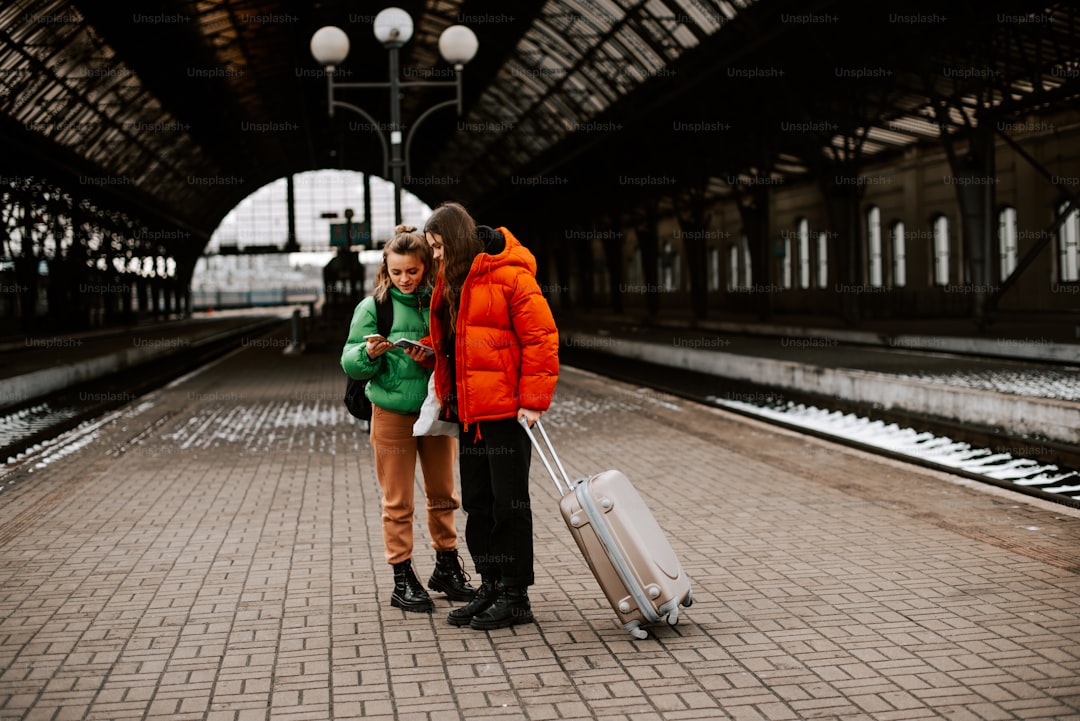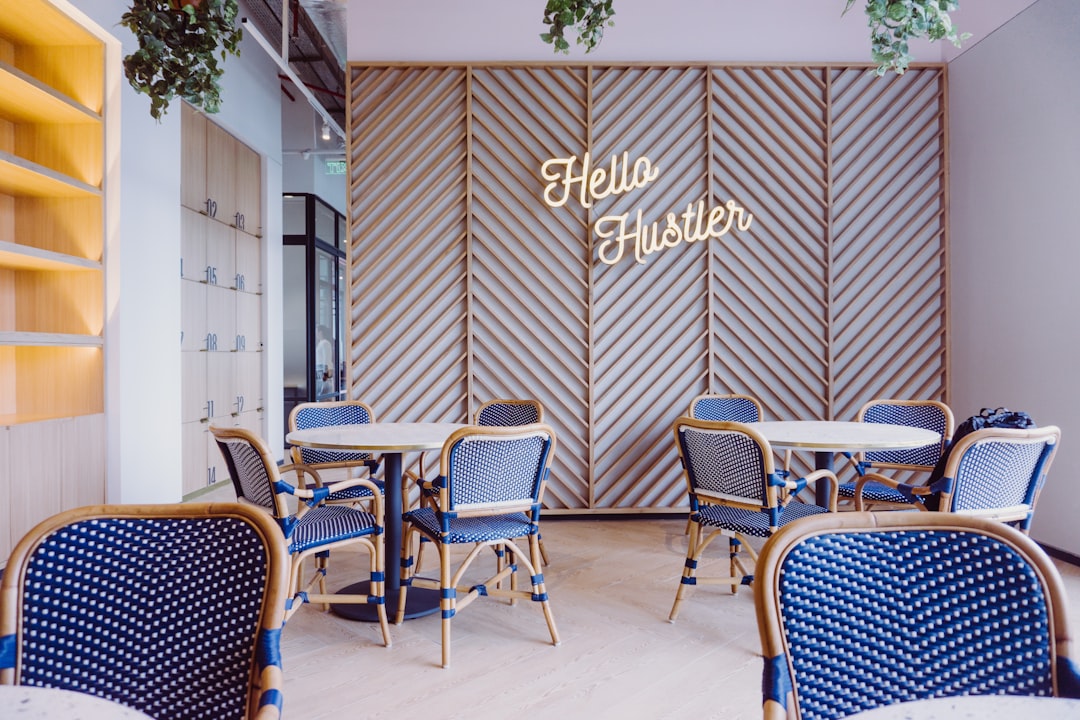Explore Africa’s Prime Digital Nomad Havens

Introduction
The world of remote work has exploded in the last few years. Professionals who are no longer tied to a single office now have the freedom to choose where they live, work and explore. Africa, with its vibrant cultures, breathtaking landscapes and growing tech ecosystems, is emerging as a hotspot for digital nomads seeking a fresh perspective. From bustling coastal cities to tranquil highland towns, the continent offers a range of environments that combine reliable connectivity, affordable living and a sense of adventure. This guide walks you through the most compelling nomad havens across Africa, highlighting what makes each location special, the practicalities of staying there and how to make the most of your time on the continent.
Why Africa Stands Out
Diversity of Experience
Africa is not a monolith. Each country, each region, even each city has its own language, cuisine, music and rhythm of life. A nomad can spend a month navigating the vibrant markets of Lagos, then head to the pristine beaches of Zanzibar, and later hike the misty slopes of the Atlas Mountains. This constant change of scenery fuels creativity and prevents the monotony that can creep into remote work routines.
Cost of Living
Compared with many traditional nomad hubs in Europe or North America, most African cities provide a lower cost of living while still delivering a high quality of life. A modern apartment in Nairobi or Cape Town can be rented for a fraction of the price of a comparable space in Lisbon. Food, transportation and entertainment are also budget friendly, allowing nomads to stretch their earnings and enjoy a richer lifestyle.
Growing Tech Infrastructure
Over the past decade, several African capitals have invested heavily in broadband infrastructure, coworking spaces and startup incubators. Cities such as Kigali, Accra and Casablanca now host reliable fiber connections, fast mobile data and a supportive community of entrepreneurs. This ecosystem makes it easier for remote professionals to stay productive and network with local innovators.
Visa Flexibility
Many African governments have introduced special visas aimed at remote workers. These visas often allow stays of three to twelve months, sometimes with the possibility of extension. The process is usually straightforward, requiring proof of employment and a minimum income threshold. This regulatory openness signals a welcoming attitude toward digital nomads.
Criteria for Choosing a Nomad Haven
When scouting a new base, nomads typically evaluate a handful of key factors. Below is a quick checklist that can help you match your preferences with the right African city.
- Internet Reliability – Speed, stability and redundancy of both fixed broadband and mobile data.
- Coworking Availability – Number, quality and pricing of shared workspaces, as well as community events.
- Cost of Living – Rental rates, utilities, groceries, dining and transport costs.
- Safety – Crime rates, political stability and health infrastructure.
- Community – Presence of other remote workers, expats and networking opportunities.
- Lifestyle – Access to nature, cultural attractions, nightlife and recreational activities.
- Visa Options – Length of stay, application process and any work restrictions.
- Transportation – Public transit, ride sharing and proximity to international airports.
With these criteria in mind, let’s explore the standout destinations across the continent.
West African Gems
Accra, Ghana
Accra has quickly become a favorite for remote workers seeking a vibrant urban experience blended with a laid‑back beach vibe. The city’s internet infrastructure is robust, with fiber connections delivering speeds of 100 Mbps and 4G LTE networks covering almost every neighborhood. Coworking spaces such as Impact Hub Accra, Workstation and iSpace offer comfortable desks, meeting rooms and regular networking events that connect nomads with Ghanaian startups.
The cost of living in Accra is moderate. A one bedroom apartment in the central business district can be rented for about $800 per month, while a similar unit in the suburb of East Legon averages $600. Street food, local markets and mid‑range restaurants keep dining expenses low; a typical meal at a local eatery costs $3 to $5, whereas a dinner for two at a mid‑level restaurant runs around $30.
Safety in Accra is generally good, especially in the expatriate‑friendly neighborhoods. The city benefits from a visible police presence and a well‑developed health system, with several private hospitals offering high quality care. Ghana’s “remote work visa” allows stays of up to twelve months for those who can show a minimum monthly income of $2,000.
Culturally, Accra is a hub of music, art and fashion. The annual Chale Wote Street Art Festival transforms the city’s streets into a living gallery. Beaches such as Labadi and Kokrobite are just a short drive away, providing a perfect escape after a day of meetings. For weekend trips, the historic forts of Cape Coast and the lush hills of the Volta Region are easily reachable by car.
Dakar, Senegal
Dakar offers a unique blend of French colonial charm and West African dynamism. The city’s internet service has improved dramatically, with fiber providers delivering average speeds of 80 Mbps in central districts. Mobile broadband is also reliable, with 4G coverage extending to most suburbs. Coworking venues such as Jokkolabs and The Spot provide modern workspaces, high speed Wi‑Fi and a thriving community of freelancers, developers and creatives.
Living costs in Dakar are slightly higher than in Accra but still affordable by Western standards. A furnished one bedroom apartment in the city centre costs around $950 per month, while the same space in the residential area of Almadies is about $1,200. Groceries are inexpensive when buying local produce; a basket of fruits and vegetables can be purchased for $15 to $20 each week. Dining out ranges from $5 street‑food stalls to $35 for a three‑course meal at an upscale restaurant.
Safety is a mixed picture; the central districts are generally safe during daylight hours, but it is advisable to avoid isolated areas after dark and to use reputable transport services. Senegal’s health facilities in Dakar are among the best in West Africa, with several private clinics offering English‑speaking staff.
The Senegalese government has introduced a “digital nomad visa” that permits stays of up to nine months, provided applicants can demonstrate a steady income of $2,500 per month. The visa can be extended once the initial period expires.
Dakar’s cultural scene is vibrant. Music lovers can explore the birthplace of mbalax, while art enthusiasts will enjoy the galleries of the Village des Arts. The nearby Pink Lake (Lake Retba) offers a surreal landscape for day trips, and the historic island of Gorée provides a poignant glimpse into the region’s past.
East African Highlights
Nairobi, Kenya
Nairobi is often referred to as “Silicon Savannah” for its booming tech sector. The city’s internet connectivity is among the best on the continent, with fiber providers delivering speeds exceeding 150 Mbps in many business districts. Mobile data is also fast and widely available, with 4G networks covering the entire metropolitan area.
The coworking scene in Nairobi is diverse and mature. Spaces such as Nairobi Garage, iHub and Workstyle Kenya offer flexible desk options, private offices, high‑end meeting rooms and regular events that bring together local entrepreneurs and international remote workers. Many of these venues also host hackathons, pitch nights and skill‑sharing workshops.
Cost of living in Nairobi is relatively low for a major African capital. A modern one bedroom apartment in the suburb of Kilimani rents for roughly $700 per month, while a similar unit in the upscale district of Karen costs about $1,000. Utilities are affordable, and groceries can be sourced from local markets at budget‑friendly prices. A typical lunch at a café costs $5 to $7, and a dinner for two at a mid‑range restaurant averages $30.
Safety is a consideration, especially after dark. Most expatriate neighborhoods have private security and well‑lit streets. It is advisable to use ride‑hailing apps such as Uber or Bolt for transportation. Nairobi’s health facilities are excellent, with several internationally accredited hospitals such as Aga Khan University Hospital.
Kenya introduced a “remote work visa” in 2023 that allows stays of up to twelve months for applicants who can demonstrate a monthly income of $2,300. The visa can be renewed once the initial period ends.
Outside of work, Nairobi offers a wealth of activities. The Nairobi National Park lies just on the city’s edge, providing an opportunity to see wildlife against a skyline backdrop. The Karura Forest offers jogging trails and picnic spots. For a weekend getaway, the coastal city of Mombasa, the Great Rift Valley lakes and the tea‑covered slopes of the Aberdare Range are within a few hours’ drive.
Kigali, Rwanda
Kigali is often praised for its cleanliness, safety and forward‑looking policies. Internet service is reliable, with fiber networks delivering average speeds of 100 Mbps throughout the city. Mobile broadband is fast and inexpensive, with data packages that suit the needs of remote workers.
The coworking environment in Kigali is growing quickly. Spaces such as Impact Hub Kigali, The Office and KLab provide bright, well‑equipped work areas, high‑speed internet and a collaborative community of entrepreneurs, designers and developers. Regular meet‑ups, mentorship programs and language exchange events make it easy for newcomers to integrate.
Living costs in Kigali are among the most affordable on the continent. A furnished one bedroom apartment in the central district of Nyarugunga rents for around $500 per month, while a similar unit in the upscale suburb of Kiyovu costs about $650. Local markets offer fresh produce at low prices, and a typical meal at a local restaurant costs $4 to $6. International cuisine is available at a slightly higher price point.
Rwanda is consistently ranked as one of the safest countries in Africa. Crime rates are low, and the government invests heavily in public safety and health services. Kigali’s hospitals, such as King Faisal Hospital, meet international standards and have English‑speaking staff.
Rwanda’s “remote work visa” permits stays of up to twelve months for individuals earning at least $2,000 per month. The application process is straightforward, requiring proof of employment and health insurance.
Kigali’s location makes it a gateway to natural wonders. The nearby Volcanoes National Park is home to mountain gorillas, while Lake Kivu offers tranquil beaches and water sports. The city’s vibrant arts scene includes galleries, music festivals and a growing craft beer culture. For a change of pace, the historic town of Gisenyi on the lake’s shore provides a relaxed atmosphere.
Southern African Favorites
Cape Town, South Africa
Cape Town is a global icon of natural beauty, cultural richness and entrepreneurial spirit. The city’s internet infrastructure is top tier, with fiber connections delivering speeds of 200 Mbps in most suburbs and reliable 4G LTE coverage throughout the metropolitan area.
Coworking spaces in Cape Town are abundant and varied. Notable venues include Workshop17, The Woodstock Exchange and Groundwork, each offering modern workstations, private offices, event spaces and a lively community of digital creators, marketers and tech developers. Many of these spaces host workshops on topics ranging from blockchain to sustainable design.
Living costs in Cape Town are higher than in many other African cities but remain reasonable compared with European capitals. A one bedroom apartment in the suburb of Sea Point rents for approximately $1,200 per month, while a similar unit in the up‑and‑coming area of Woodstock can be found for $900. Groceries are moderately priced, especially when purchasing locally grown produce. A coffee and pastry at a café costs $4, and a dinner for two at a mid‑range restaurant averages $45.
Safety varies across neighborhoods. The central business district and tourist hotspots are well patrolled, but it is advisable to remain vigilant after dark and to use reputable ride‑hailing services. Cape Town’s health system includes world‑class facilities such as Groote Schuur Hospital and private clinics with English‑speaking staff.
South Africa does not currently offer a dedicated digital nomad visa, but many remote workers stay on a tourist visa for up to ninety days and can apply for extensions or a temporary residence permit if needed. Proof of sufficient funds and a return ticket are typically required.
Cape Town’s lifestyle is unmatched. Table Mountain provides hiking, rock climbing and panoramic views, while the Atlantic coastline offers surfing, kayaking and whale watching. The city’s wine regions, such as Stellenbosch and Franschhoek, are perfect for weekend trips. Cultural highlights include the District Six Museum, vibrant street art in Woodstock and a thriving food scene that blends African, Asian and European influences.
Luanda, Angola
Luanda is an emerging hub for remote professionals drawn to its fast‑growing economy and coastal charm. Internet connectivity has improved significantly, with fiber providers delivering speeds of 80 Mbps in the city centre and 4G LTE covering most residential areas. Mobile data remains affordable and reliable.
Coworking spaces are on the rise, with venues such as Cowork Luanda and The Hub offering modern desks, meeting rooms and networking events that connect expatriates with local entrepreneurs in sectors like oil, construction and fintech.
Cost of living in Luanda is relatively high compared with many African capitals, largely due to housing costs. A furnished one bedroom apartment in the upscale district of Talatona rents for around $1,800 per month, while a similar unit in the more modest area of Viana costs about $1,200. However, groceries and dining can be budget friendly if local markets are used; a meal at a street food stall costs $3, and a dinner for two at a mid‑range restaurant averages $40.
Safety is a concern in certain neighborhoods, but the expatriate districts are well guarded and have a visible police presence. Health services in Luanda are limited compared with South Africa, but private clinics such as Clínica São José provide quality care.
Angola offers a “temporary residence permit” that can be obtained for up to one year, provided applicants demonstrate a steady income of at least $2,500 per month and have health insurance.
Luanda’s lifestyle blends urban sophistication with beach relaxation. The city’s coastline offers fresh seafood, and nearby beaches such as Mussulo Island are perfect for weekend getaways. The cultural scene includes music festivals, art galleries and a growing culinary movement that celebrates Angolan flavors.
North African Treasures
Casablanca, Morocco
Casablanca is Morocco’s economic engine and a gateway for digital nomads seeking a blend of modern infrastructure and historic charm. Fiber optic networks deliver speeds of 150 Mbps in most business districts, while 4G coverage is extensive throughout the city.
Coworking options are plentiful. Spaces such as New Work Lab, The Spot Casablanca and Workspot provide ergonomic workstations, high‑speed internet and regular community events that attract freelancers, designers and tech professionals. Many venues also host language exchange evenings and startup pitch nights.
Living costs in Casablanca are moderate. A one bedroom apartment in the central district of Maarif rents for about $800 per month, while a similar unit in the quieter suburb of Ain Sebaa costs $600. Local markets such as the Central Market offer fresh produce at low prices, and a typical meal at a traditional Moroccan restaurant costs $6 to $8. International cuisine is available at higher price points, with a dinner for two at a mid‑range restaurant averaging $35.
Safety in Casablanca is generally good, especially in the well‑touristed neighborhoods. The city has a reliable public transport system that includes trams, buses and a modern railway station. Health facilities such as the Hassan II University Hospital meet international standards and have English‑speaking staff.
Morocco introduced a “digital nomad visa” in 2022 that permits stays of up to twelve months for applicants who can prove a monthly income of $2,300. The visa can be renewed once the initial period expires.
Culturally, Casablanca offers a dynamic mix of art, music and architecture. The historic Hassan II Mosque, one of the world’s largest, is a must‑see. The nearby town of Rabat, the nation’s capital, is a short train ride away and offers additional museums and historic sites. For weekend escapes, the Atlantic coast towns of El Jadida and Oualidia provide relaxed beach atmospheres and fresh seafood.
Tunis, Tunisia
Tunis combines Mediterranean charm with a growing tech ecosystem. Fiber broadband delivers average speeds of 100 Mbps across the city, and 4G mobile coverage is reliable and affordable.
Coworking spaces such as The Dot, Impact Hub Tunis and Buro offer modern work environments, high‑speed Wi‑Fi and a collaborative community of developers, marketers and creatives. Regular meet‑ups, hackathons and cultural events foster a vibrant professional network.
Cost of living in Tunis is among the most affordable in North Africa. A furnished one bedroom apartment in the central district of El Menzah rents for approximately $550 per month, while a similar unit in the historic Medina costs $450. Food markets provide fresh produce at low prices, and a typical meal at a local café costs $4 to $6. Dining at a mid‑range restaurant averages $25 for two people.
Safety in Tunis is generally stable, though visitors should exercise normal precautions in crowded areas. The city’s public transport includes a modern metro system, buses and a reliable taxi network. Health care is well developed, with private hospitals such as Clinique Les Orangers offering high‑quality services.
Tunisia does not yet have a dedicated digital nomad visa, but remote workers can stay on a tourist visa for up to ninety days and can request extensions for a total stay of up to one hundred eighty days, provided they have proof of sufficient funds and a return ticket.
Tunis offers a rich cultural experience. The ancient ruins of Carthage, the historic Medina (a UNESCO World Heritage site) and the Bardo Museum showcase the region’s layered history. The nearby coastal town of Sidi Bou Said, with its iconic blue‑white architecture, is perfect for a weekend day trip. For nature lovers, the Atlas Mountains and the Sahara Desert are within reachable distance for longer excursions.
Practical Tips for the African Nomad
Staying Connected
- Choose a local SIM – Even if your accommodation offers Wi‑Fi, having a local SIM with a generous data package ensures you stay online while on the move. Major providers in most African countries offer 4G plans that cost between $10 and $30 per month for unlimited data.
- Carry a power bank – Power outages can occur, especially in smaller towns. A high‑capacity power bank (20,000 mAh or more) keeps your laptop and phone running during blackouts.
- Use a VPN – Some African ISPs may throttle certain services or have restrictive firewalls. A reliable VPN protects your privacy and guarantees access to global platforms.
Health and Safety
- Vaccinations – Check the recommended vaccines for each country you plan to visit. Common requirements include yellow fever, hepatitis A and B, typhoid and routine immunizations.
- Travel insurance – Choose a policy that covers medical emergencies, evacuation and lost equipment. Many insurers now offer specific clauses for digital nomads.
- Stay aware – Use reputable ride‑hailing apps, avoid walking alone late at night in unfamiliar neighborhoods, and keep a copy of important documents (passport, visa, insurance) in a secure cloud folder.
Banking and Money
- Open a local bank account – In countries with favorable banking regulations, a local account can reduce fees on withdrawals and make it easier to pay rent and utilities.
- Use international cards – Cards such as Revolut, Wise or N26 allow you to hold multiple currencies and enjoy low conversion fees.
- Carry some cash – While urban areas accept cards widely, smaller towns and markets may prefer cash, especially in local currencies.
Community Building
- Join coworking events – Most coworking spaces host weekly or monthly meet‑ups, skill‑sharing sessions and social outings. Attending these events accelerates networking and helps you feel at home.
- Participate in local meet‑ups – Platforms like Meetup, Facebook groups and Eventbrite list gatherings for expats, language exchanges and hobby clubs.
- Volunteer or teach – Offering a few hours of your expertise to a local NGO, school or startup can deepen your connections and provide a rewarding cultural exchange.
Working Hours and Time Zones
- Plan around the local rhythm – In many African cities, the workday may start later due to traffic or climate considerations. Align your schedule with your clients’ expectations but also respect local customs.
- Leverage time zone advantages – Africa’s location between Europe, the Middle East and the Americas makes it an ideal hub for overlapping working hours with multiple regions.
Sustainable Travel and Ethical Considerations
Traveling responsibly enhances both your experience and the wellbeing of the host communities. Here are some guidelines to keep in mind:
- Support local businesses – Choose locally owned restaurants, boutique hotels and artisan markets over international chains. This injects money directly into the community.
- Reduce plastic waste – Carry a reusable water bottle and coffee cup. Many African cities now have refill stations and encourage eco‑friendly habits.
- Respect cultural norms – Dress modestly where required, seek permission before photographing people, and learn a few basic phrases in the local language.
- Leave no trace – When exploring natural sites, stay on marked trails, carry out all litter and avoid disturbing wildlife.
Sample Itineraries
Two‑Week Exploration of East Africa
Day 1‑4: Nairobi, Kenya – Set up your workspace at Nairobi Garage, explore the national park and enjoy Kenyan cuisine.
Day 5‑7: Kigali, Rwanda – Move to Impact Hub Kigali, take a day trip to Volcanoes National Park for a gorilla trek.
Day 8‑10: Dar es Salaam, Tanzania – Work from The Hub, unwind on the beaches of Bagamoyo, and visit the historic Stone Town in nearby Zanzibar for a weekend.
Day 11‑14: Addis Ababa, Ethiopia – Join a coworking community at Iceaddis, discover the city’s museums and take a day trip to the rock‑hewn churches of Lalibela.
One‑Month Southern Africa Loop
Week 1‑2: Cape Town, South Africa – Settle into Groundwork, hike Table Mountain, explore the Cape Winelands.
Week 3: Luanda, Angola – Work from Cowork Luanda, relax on Mussulo Island, sample fresh seafood.
Week 4: Maputo, Mozambique – Use a local coworking space, enjoy the coastal promenade, and take a boat trip to the Bazaruto Archipelago.
These itineraries illustrate how you can blend productivity with cultural immersion, moving between hubs that each offer distinct flavors and professional ecosystems.
Final Thoughts
Africa is rapidly reshaping the perception of where remote work can thrive. The continent’s blend of reliable internet, affordable living, welcoming visas and unparalleled natural beauty creates an environment where digital nomads can both excel professionally and enrich their lives personally. Whether you are drawn to the buzzing streets of Accra, the tech‑savvy corridors of Nairobi, the pristine shores of Cape Town or the historic alleys of Casablanca, there is a prime digital nomad haven waiting for you.
Approach each destination with curiosity, respect and an open mind. Build connections with local entrepreneurs, immerse yourself in the cultural rhythms and take advantage of the continent’s diverse landscapes for weekend adventures. By doing so, you will not only maintain a high level of productivity but also return home with stories, friendships and experiences that are truly priceless. Africa’s prime digital nomad havens are ready – it’s time to explore them.
Random Posts

Living Light on the Road Building a Green Nomad Community
Discover how to travel light and green by joining a community that shares tools, knowledge, and renewable resources, turning solo nomad life into a sustainable, collaborative adventure.
3 weeks ago

Nomad Guide to Legal Compliance and Financial Freedom
A practical roadmap for digital nomads that demystifies legal residency, tax obligations, finance planning, and health insurance, giving you a clear plan to stay compliant and achieve true financial freedom
2 weeks ago

Thailand Digital Nomad Guide Safety and Culture Tips
Discover essential safety advice and cultural etiquette for thriving as a digital nomad in Thailand, from health and transport tips to local customs, so you can work remotely with confidence and respect.
1 month ago

Wander Through Europe’s Best Remote Work Cities
Discover Europe’s top remote-work hubs where fast internet, vibrant culture and affordable living combine, giving digital nomads the perfect blend of productivity and adventure.
2 weeks ago

Mastering Remote Work and Productivity for Digital Nomad Entrepreneurs
Learn how to turn the freedom of digital nomad life into consistent productivity with proven systems, habits and tools for remote work, finance, and client management so you can thrive anywhere.
1 month ago
Latest Posts

Essential Software Every Remote Professional Should Use
Master remote work with essential tools: instant messaging like Slack, high definition video calls such as Zoom, and asynchronous voice apps. Streamline communication, stay connected and boost productivity.
1 day ago

Mastering Remote Work Productivity for Digital Nomads and Freelancers
Learn proven habits, tools, and tactics that help digital nomads and freelancers stay focused, deliver quality work, and maintain a sustainable lifestyle while traveling the world.
1 day ago

Tech‑Friendly European Towns Perfect for Remote Living
Discover Europe’s best small towns where fast internet, affordable living and vibrant tech communities let you work remotely while soaking up historic charm, lakeside views or mountain air.
1 day ago